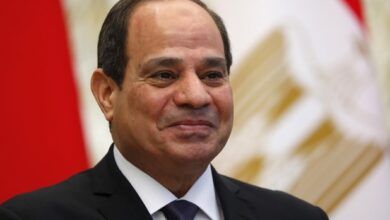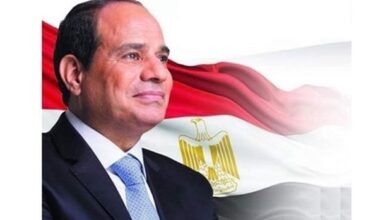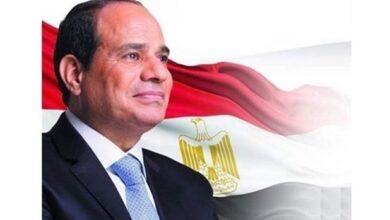I find the Egyptian proverb that means to say that your enemy will pick on you while your friend would do anything for you applicable on two occasions that I have personally witnessed, with 37 years between them.
The first was in January 1977 at the time of President Sadat. He had led Egypt and the Arabs in the 6 October 1973 war (the tenth of Ramadan in the Hijri calendar) when the Egyptian army crossed the Suez Canal and destroyed the Bar Lev line that Israel had constructed after its landslide victory over the Arabs (Egypt, Syria and Jordan) in June 1967.
The victory of the October War regained Arab dignity, and Sadat was referred to in the media as the “Hero of the Crossing.”
But that hero found himself forced to fight an internal battle four years later. It was the battle of the food and energy subsidies that were devouring a big proportion of the state budget and hindering Egypt, not only from developing its economy in the face of an annual population increase rate of 3 percent, but also from borrowing from international financial institutions like the World Bank and the International Monetary Fund.
Sadat was compelled to reduce subsidies of certain basic commodities, notably bread, oil and sugar. But when this was announced in the news, massive demonstrations broke out in all Egyptian cities, from Alexandria in the north to Aswan in the south, in what was called “The Bread Uprising,” which forced Sadat to go back on his decision in order to appease the situation in the street.
In other words, the October victory did not intercede for Sadat when he touched the bread of the Egyptians.
This has been a lesson for him and for all Egyptian officials for the following four decades, or at least so it was believed until 2014, which brings us to the second occasion.
The hero of the second occasion is President Abdel Fattah Sisi, who did lead Egypt to any war victory, but who dared to do what other Egyptian officials could not for decades. For he did reduce subsidies of basic commodities without causing any uprising or even protest. In fact, it was almost the opposite that happened, as he even called on the Egyptians to give to national public projects.
Perhaps the most important of these projects is the new Suez Canal that is being dug parallel to the old canal to make it deeper and wider so as to allow giant tankers to pass in both directions at all times instead of having to wait for twelve hours in Suez, Port Said or the Bitter Lakes of Ismailia.
The estimated cost of the project is LE60 billion (US$9 billion), which renders it as majestic as the Great Pyramid or the High Dam.
Not only would the project yield three times the revenues of the canal, but it would also create new urban communities that would attract three million inhabitants and reduce the population density that is concentrated in just 6 percent of Egypt's one million square kilometers.
And the amazing thing about the project is that it is funded locally through an IPO of shares and bonds ranging between one thousand and ten thousand pounds, which makes it affordable for most social classes.
This created an enormous demand to the extent that the four Egyptian banks that managed the funds, namely the National Bank of Egypt, Banque du Caire, Misr Bank and Bank of Alexandria, had to double their working hours to eight in the evening instead of four in the very first week
the IPO was offered.
Hisham Ramez, the governor of the central bank, said that this was an unprecedented phenomenon in the history of Egyptian banks, and that the total amount needed would be attained in less than a month if the turnout continued to be the same as in the first week. In fact, the amount was reached in just eight days.
This unprecedented phenomenon, which psychologists and sociologists will take long to analyze and understand, can only be explained as a case of love and trust between a people and their leader.
There was something of the same phenomenon in the relationship between the people and President Gamal Abdel Nasser. For even when he was defeated by Israel in June 1967, and despite acknowledging responsibility and stepping down, the masses staged demonstrations refusing his resignation and demanding him to stay, which Nasser agreed to and remained in office until he passed away in September 1970.
In other words, the Egyptians were prepared to do anything for Nasser because they loved him, something they were not prepared to do for Sadat and Hosni Mubarak, despite their achievements.
Max Weber, the German sociologist of the early last century, called that phenomenon “Charisma,” whereby the people would expect great achievements from their beloved leader.
This would make Sisi bear a great responsibility on his shoulders. He did well when he saved the Egyptians from the Muslim Brotherhood nightmare and when he launched the new Suez Canal project. But what can he do next in order to keep the charisma that he enjoys among the Egyptians?
Edited translation from Al-Masry Al-Youm




